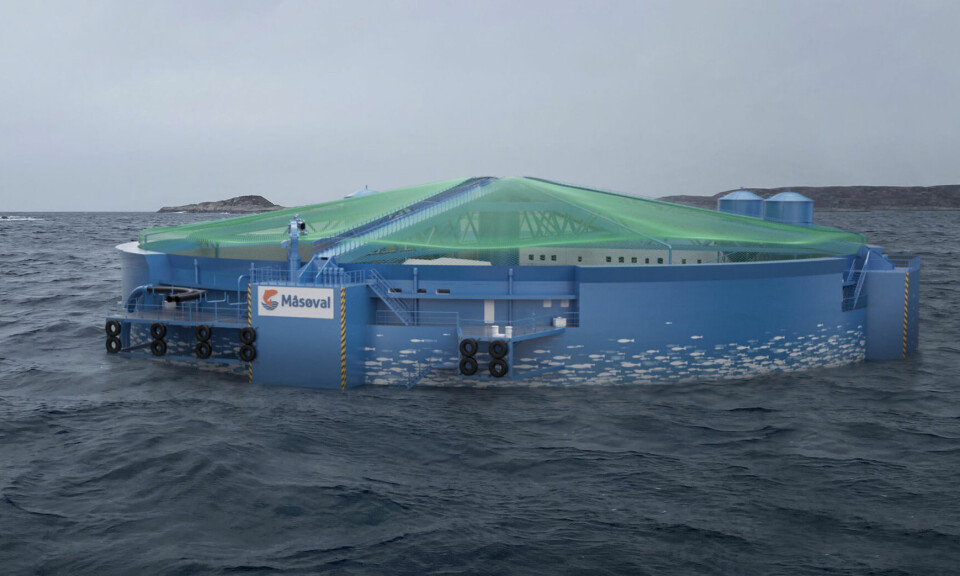
Fish farmer cancels plans for semi-closed pen
Norwegian salmon tax makes the Aqua Semi project unviable in its current form, says Måsøval
A Norwegian salmon farmer has cancelled plans to build a steel semi-closed containment system because of the country’s 25% extra tax on salmonid farmers.
The Måsøval group, which expects to harvest 24,300 tonnes of salmon in 2023, has written off NOK 45 million (£3.33m) related to investments in the “Aqua Semi” pen, reports Fish Farming Expert's Norwegian sister site, Kyst.no.
The company received four development licences – equivalent to 3,120 tonnes of maximum allowed biomass – for the Aqua Semi in 2019 and had been working with ship builder and fabricator Vard on the project, which owned the concept and technology.
Måsøval first said that it had postponed plans to implement the Aqua Semi in November last year, following the government’s announcement in September that it was planning a “ground rent” tax of up to 40% on fish farmers’ profits.
No tax relief
Opposition in Norway’s parliament, the Storting, meant the government was forced to reduce the tax to 25%, but that still leaves salmon and trout producers facing a total profit tax of 47% when 22% corporation tax is added, and that has prompted Måsøval to cancel its plans for the Aqua Semi.
The new ground rent tax does not provide tax relief for investments in development permits, and full ground rent tax is payable on profits after the project is completed and the development licences are converted to standard biomass permits.
“The ground rent tax makes the Aqua Semi project financially unviable in its current form. Måsøval has therefore decided to cancel the project and take a one-off write-down of the investment totalling NOK 45 million,” the company said in its report for the second quarter of 2023.
Måsøval nevertheless specified that the development licences permits are still valid and that the project can be restarted until 2027.
Weaker Q2 result
The NOK 45m write-off contributed to a weaker Q2 result for Måsøval than in 2022.
The group achieved operating income of NOK 805m, a decrease compared to NOK 934m in Q2 2022. Operational EBIT in Q2 2023 was NOK 211m, down from NOK 501m in the same period last year.
“The decrease in income is due to lower harvest volume and more downgrading with lower achieved prices compared to the corresponding quarter last year. The decrease in operational EBIT is caused by higher prices for feed and costs for treating salmon lice on our 22nd generation,” the company reported.
Måsøval harvested 7,573 tonnes in the quarter, compared to 8,702 tonnes in Q2 2022.
The group reported a pre-tax profit of NOK 151m for Q2 2023. The implementation of the ground rent tax from 1 January 2023 is reflected in tax costs of NOK 275m for the period. The group therefore made a post-tax loss of NOK 123m in Q2.
Farming is the group’s largest segment and achieved sales revenue of NOK 737m, of which NOK 699m was the sale of salmon. Lower achieved prices than in Q2 2022 and a decrease in harvest volume led to a reduction in sales revenue of NOK 135m. Operational EBIT in Q2 2023 amounted to NOK 220m (NOK 502m). Operational EBIT per kg of harvested salmon was NOK 29.0 (NOK 57.7).























































